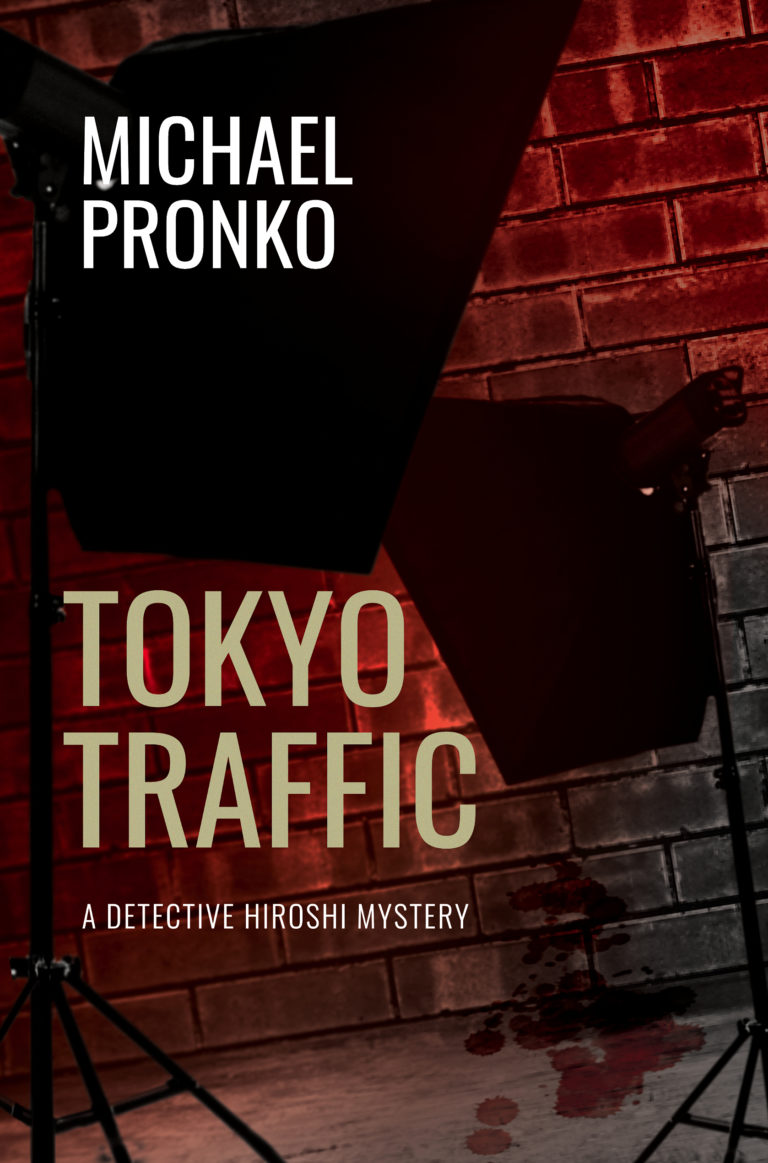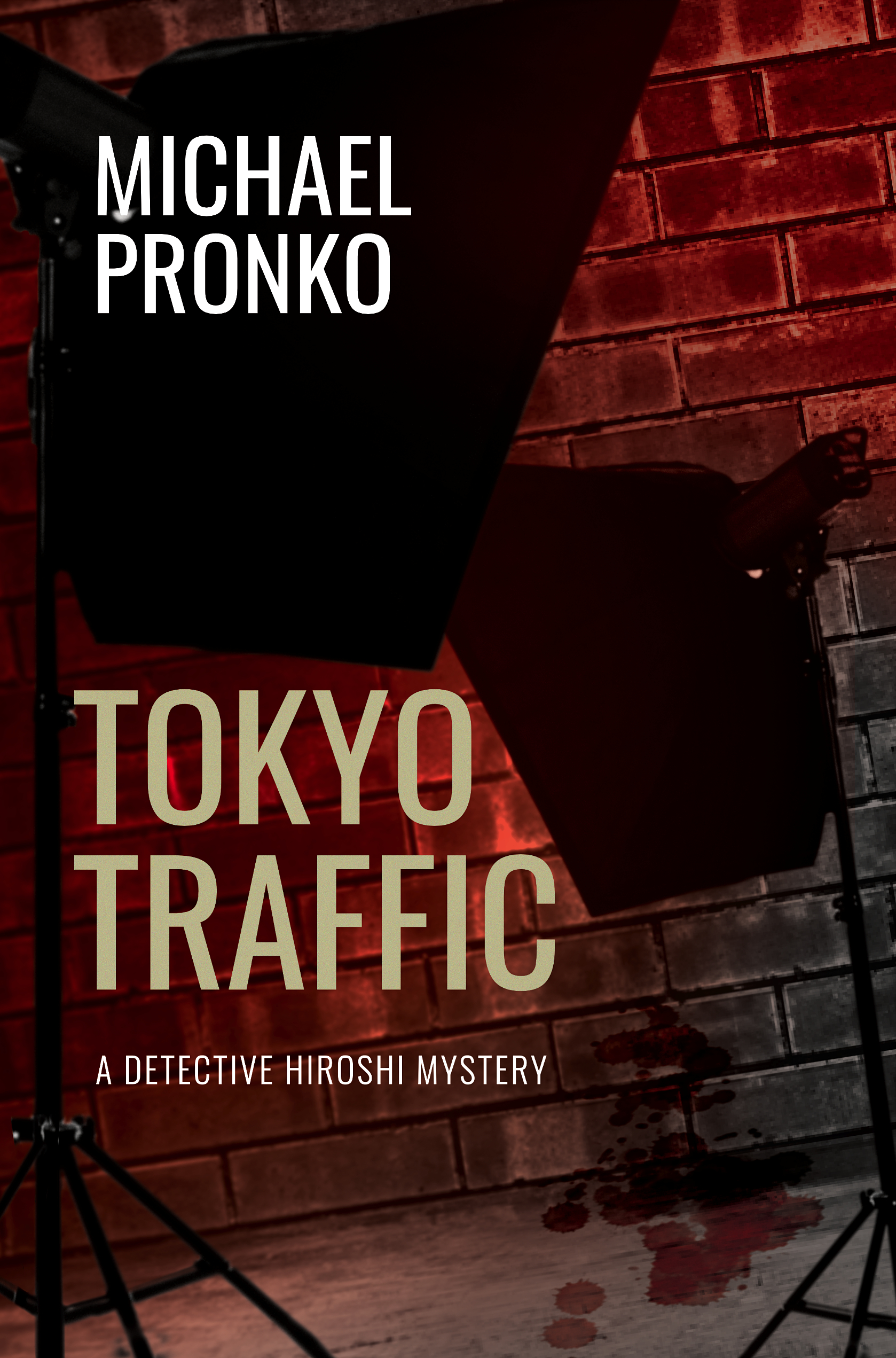TOKYO TRAFFIC, the third in a series of novels by Michael Pronko featuring Detective Hiroshi, is a high-suspense, action-packed thriller, with a deeply sympathetic heroine, a conscientious and likeable detective, and villains who are believable and fully human but not at all hard to hate. Its indictment of the human trafficking industry, and lax government policies and laws that allow it to continue, is fierce, righteous, and not at all subtle, but does not end up being preachy or interfering with the storytelling or the plot.
Sukanya, a frightened but resourceful Thai girl lost in the middle of a foreign country with nowhere safe to turn, is someone the reader can both root for and fear for. Her innocence, and the danger she’s in, enlist the reader’s sympathy and drive a good deal of the novel’s suspense. Seeing things from her perspective gives us a new and disturbing view of the trafficking industry, from the point of view of its very real and human victims. Those who take care of her along the way, including her new friends Chiho and Daisuke, help to restore the reader’s basic faith in humanity even as the evil and cruelty at the story’s core threatens it. The villains, though participating in a clearly evil industry and doing so without any visible remorse or even second thoughts, are not cartoon characters but real human beings with believable motivations and substantial intelligence – it takes good steady detective work to track them down and bring them to justice.
Hiroshi is, as a hero ought to be, a likeable, dedicated force of justice who cares about his job and is good at it, but has a life outside the police force as well. The plot is vigorous and action-driven, even in those places where the action is less physical and more cerebral. But there are plenty of daring chases and dangerous escapes, and the book accelerates to a dramatic, satisfyingly intense climactic final race. The story is clearly immersed in its Japanese context, with the appropriate social and cultural norms, in addition to the physical setting, but it’s done subtly and transparently enough that American readers will have no trouble understanding what’s going on. (The only untranslated term that might confuse the non-Japanese reader is meishi, but it’s not too hard to figure out from the context that it means “business card.”) Still, the context is there, and the cultural differences are noticeable enough to shift the reader’s perspective and make this a distinctly Japanese story.
A high-energy thriller set in the gruesome world of human trafficking and child pornography, Michael Pronko’s TOKYO TRAFFIC keeps the adrenaline pumping until the very end.
~Catherine Langrehr for IndieReader


